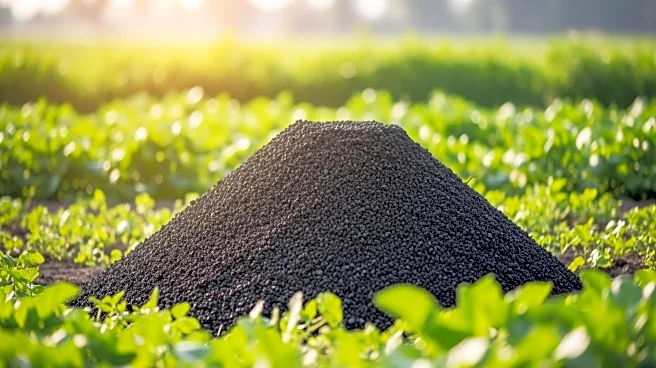What is the story about?
What's Happening?
Scientists have identified biochar, a substance derived from agricultural waste, as a promising tool to enhance crop yields and reduce pollution. The study, conducted by the Chinese Academy of Sciences' Institute of Soil Science, analyzed data from 438 studies and found that biochar application can increase crop yields by 11% and reduce methane and nitrous oxide emissions by 14% and 21%, respectively. Biochar, created by heating agricultural waste in low-oxygen conditions, also boosts soil organic carbon by 53%, potentially transforming farmlands into carbon sinks. The researchers suggest that converting 70% of leftover crop straw into biochar could increase global grain harvests by 190 million tons annually and remove significant carbon pollution from the atmosphere.
Why It's Important?
The findings highlight biochar's potential to address food security and climate change simultaneously. By improving soil health and reducing greenhouse gas emissions, biochar could play a crucial role in sustainable agriculture. The study suggests that biochar could offset around 5% of global carbon pollution, making it a valuable tool in climate mitigation strategies. However, challenges such as the need for repeated applications and upfront costs for farmers remain. Government subsidies and supportive policies are deemed essential to maximize biochar's benefits and encourage widespread adoption.
What's Next?
Further research is needed to optimize biochar application across different soils, climates, and cropping systems. Scientists aim to provide stronger evidence to support biochar's investment, potentially influencing policy decisions and encouraging farmers to adopt this technology. The study emphasizes the need for continued field tests to refine application methods and ensure biochar's effectiveness in diverse agricultural settings.















